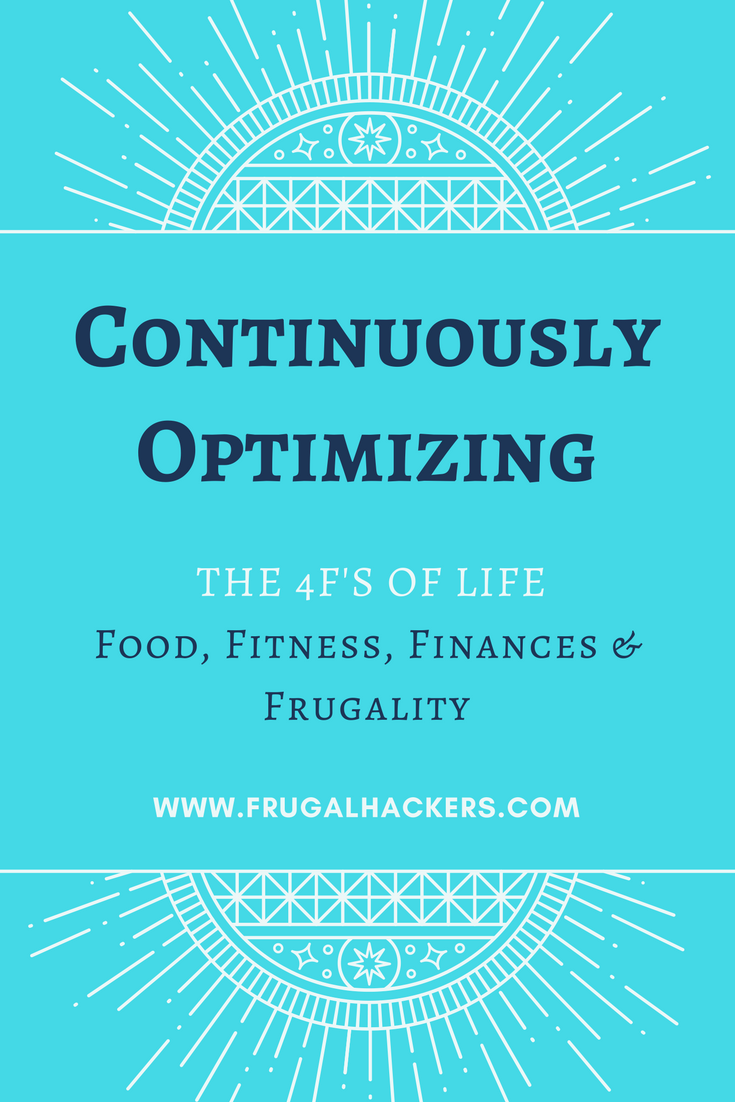Why do we track our net worth?
"If you can't measure it, you can't improve it."
Net worth isn't the only thing we optimize for in life. However, we're highly motivated right now to build up our "FI Money" - the initial stash that is big enough to generate sufficient passive income to help us achieve our financial independence. This doesn't necessarily mean that we'll quit our full time jobs the day our net worth reaches a magic number. But it does mean that we'll be giving ourselves that option to spend our time however we choose without having to think about money. Maybe we'll do more fulfilling work that pays less. Maybe we'll switch to olive oil instead of canola oil. Or maybe we'll just spend all our time hiking and cycling all across Canada and the USA. If nothing else, it allows us to take bigger risks and bigger bets in life and with our time which can pay off huge dividends in the long run.
Net Worth = Total Assets (what we own) - Total Debt (what we owe)
What assets are included here?
Current Market Value of Investments (currently living at Wealthfront and Vanguard)
Current Market Value of 401k Investment Accounts
Principal Balance in our Home (Value of House - Mortgage Balance)
What about debt?
The only debt we hold now is the mortgage on our condo. By including only the principal portion of our investment in the assets number instead of the full value of the house, we've already deducted this debt.
We don't carry any credit card debt or other personal loans. In fact, we've never carried any credit card debt our entire lives.
No student loans either, yay Canada! Going to government-funded universities and working at professional jobs during college helped us graduate debt-free.
Where's our cash?
Between the two of us, we hold around $20k in our checking accounts. We set this aside as an emergency stash and don't incorporate this into any net worth calculations. This doesn't earn us any money right now but it gives us peace of mind that in a real emergency (Black Friday doesn't count as one), a solid $15k of cash is available at a moment's notice, basically with the swipe of a card. We also have plenty of unused credit (~$50k) on all our credit cards combined to cover really unexpected emergencies above and beyond the $15k.
About the tracker
This tracker automatically updates twice a month or so from a Google Sheet we maintain manually. The green line is where we think we'll be over the next 5 years if we keep our lifestyle the same and kept going to our jobs everyday like we do now. The blue shaded part is our actual net worth over time. Unfortunately we didn't keep detailed records of our net worth prior to Jul 2016. The orange line (~$840k) is what we consider our target retirement number. $840k USD gives us about $40k CAD per year to spend using the 4% withdrawal rate rule (using an exchange rate of 1.20). That would allow us to officially retire in Vancouver forever (we're both Canadian citizens) on a fairly frugal lifestyle and not much international travel. We plan to get there in about 3 years.
The red line is our stretch goal if we choose to work for longer. That sits at $1.1M and we would get there in another 1.5-2 years of working, assuming no raises or bonuses. This would decrease our withdrawal rate to 3% and/or give us more play money to do some extra traveling. All these time estimates are assuming no appreciation on our San Francisco condo that we live in, because we prefer to be conservative with our estimates. It also assumes the stock of the startup companies we work for go nowhere which we hope will not be the case, but who knows. Better to be conservative now than sorry later.
As you can see above, we're not quite there yet. But we plan to hit the $1 million mark by July 2021, just 4 years from now, just before Mr. Frugal Hacker turns 35. We will be FI (financially independent) a bit sooner than that - Jan 2021. If the stock market does great, we might get there even sooner. If we get any raises or promotions at work, we should get there sooner as well. If our condo appreciates in value over the next few years, we would get to FI even sooner. If any of our employers' companies' stocks become liquid, then too we will hit FI earlier than planned. 3-4 years is the worst case scenario as long as the stock market keeps spitting out 7% average returns over the next 3-4 years.
See how we put together this real-time chart (you can do it too!): The Frugal Hackers Net Worth Tracker




